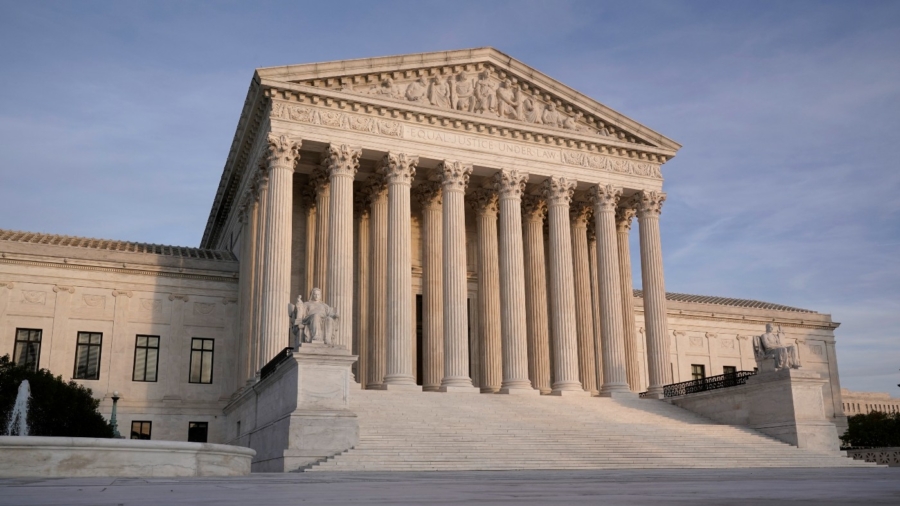The Supreme Court ruled 8-1 this morning that a high school cheerleader’s First Amendment rights were violated when Pennsylvania school district officials disciplined her for a profanity-laced rant on social media.
The ruling June 23 is a defeat for the Biden administration which had urged the court to let school districts suppress free speech by students on social media if they deem it potentially disruptive to school operations.
The court opinion in the case, Mahanoy Area School District v. B.L., court file 20-255, was written by Justice Stephen Breyer. Justice Clarence Thomas filed a dissenting opinion.
The student involved in the case, Brandi Levy, was a minor at the time the lawsuit was initiated. Legal files reduced her name to initials to protect her identity.
In 2017, when Levy was 14 and a freshman, she made the Mahanoy Area High School junior varsity cheerleading team, but as a sophomore, she failed to advance to the varsity squad, remaining on junior varsity. She also tried out for right fielder on a private softball team but did not receive that position.
On a Saturday when she wasn’t present at school, she visited Snapchat, where messages automatically disappear after 24 hours. She posted a photograph of herself and a friend, middle fingers extended, alongside the caption, “[Expletive] school [expletive] softball [expletive] cheer [expletive] everything.” In another post she wrote: “Love how me and [another student] get told we need a year of jv before we make varsity but tha[t] doesn’t matter to anyone else?”
Screenshots of the messages found their way to students and teachers, according to the court.
Several cheerleaders and other students approached the cheerleading coaches about the posts and questions about the posts came up during an algebra class taught by one of the two coaches. After discussing the matter with the school principal, the coaches decided that because the posts used profanity in connection with a school extracurricular activity, they violated team and school rules. Levy’s subsequent apologies did not move school officials and the coaches suspended her from the cheerleading team for a year.
Levy and her parents sued in U.S. district court and won a summary judgment against the school district, finding that her social media posts had not caused substantial disruption at the school. That court held that the punishment ran afoul of the First Amendment and awarded Levy nominal damages and attorneys’ fees and ordered the school to expunge her disciplinary record. The U.S. Court of Appeals for the 3rd Circuit affirmed the decision.
“It might be tempting to dismiss B. L.’s words as unworthy of the robust First Amendment protections discussed herein,” Breyer wrote for the Supreme Court. “But sometimes it is necessary to protect the superfluous in order to preserve the necessary.”
“We cannot lose sight of the fact that, in what otherwise might seem a trifling and annoying instance of individual distasteful abuse of a privilege … fundamental societal values are truly implicated,” the justice wrote quoting directly from the court’s 1971 ruling in Cohen v. California.
This is a developing story. It will be updated.
From The Epoch Times


